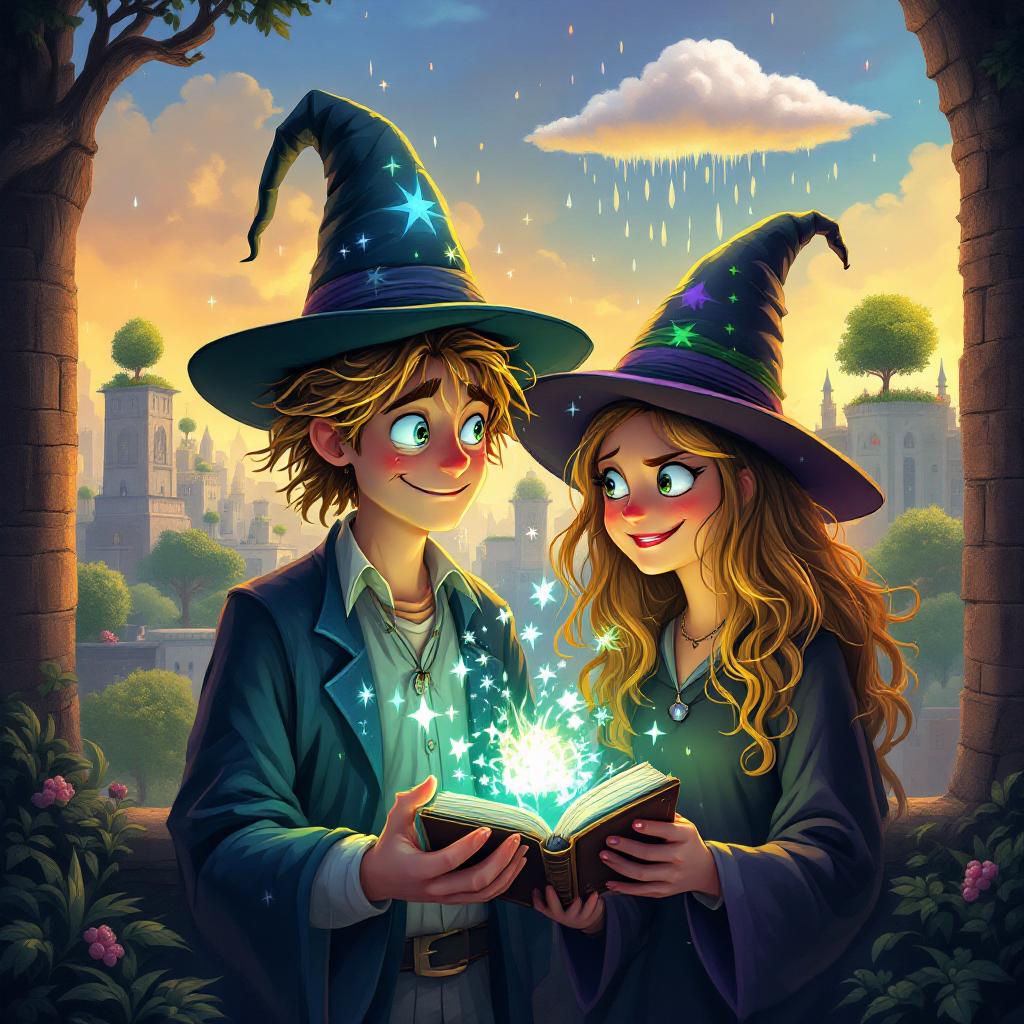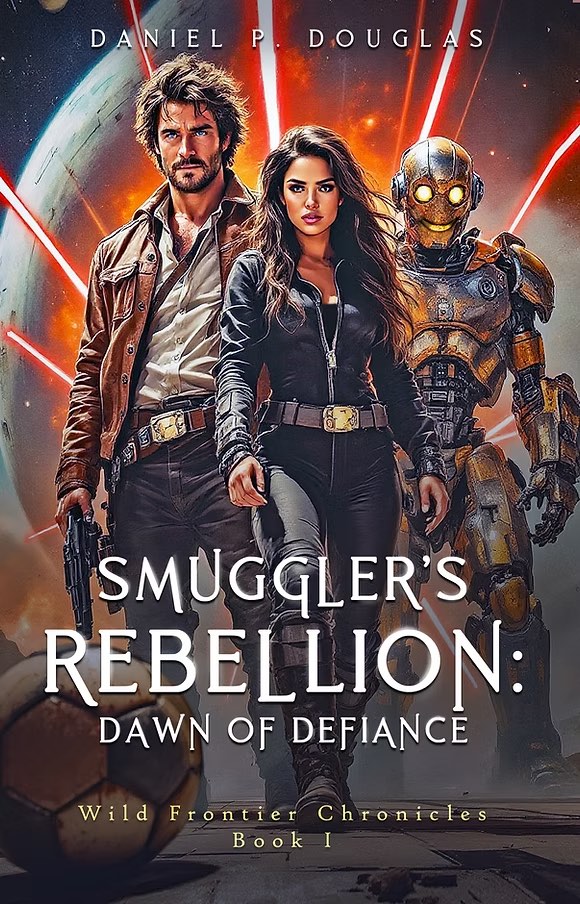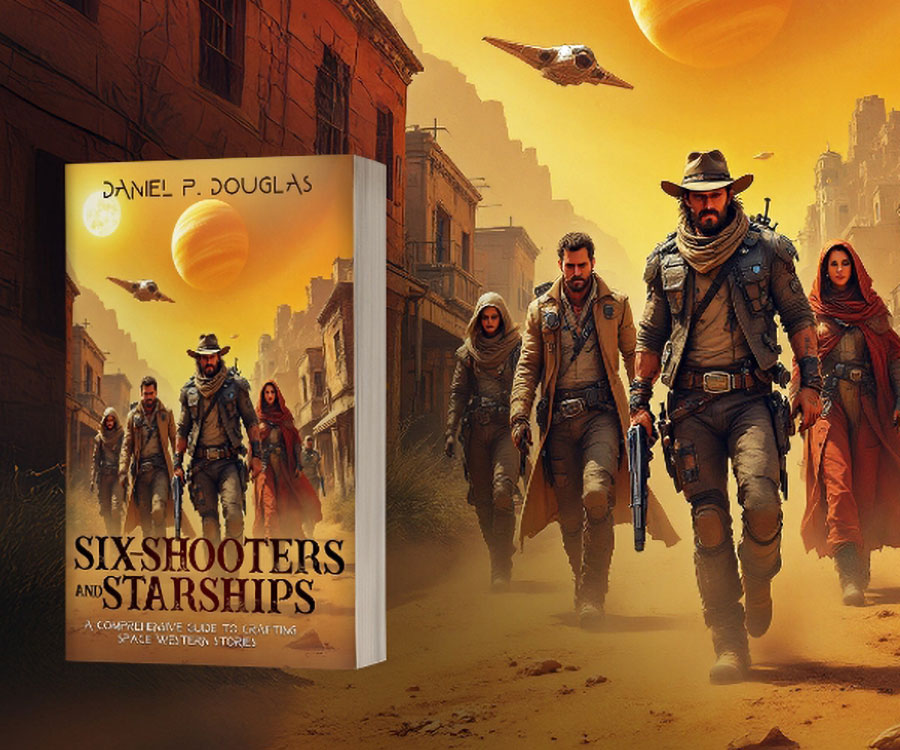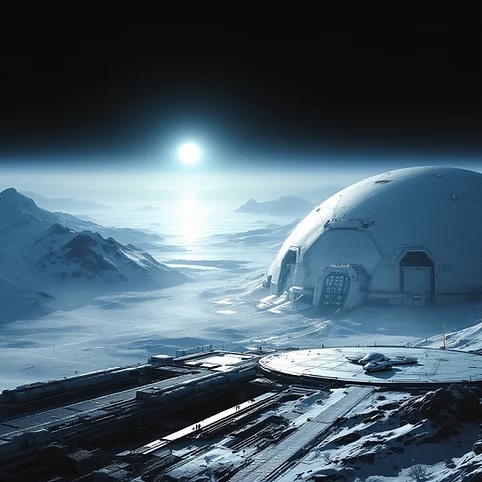Exploring the character transformation in “The Water Finder” and the legacy of the science fiction Space Western protagonist
When the Wanderer Finds a Reason to Stay
In my short story “The Water Finder,” the character of Soren arrives at the settlement of Dustfall like many Western heroes before him—by accident, with no intention of putting down roots. His crashed ship serves the same narrative purpose as a lame horse in a traditional Western, forcing our reluctant protagonist to engage with a community he would have otherwise passed by. This narrative device has threaded through Western storytelling since its inception and finds new life in the Space Western subgenre.
What makes the Space Western drifter archetype so enduring? Perhaps it’s because this character embodies something deeply relatable: the tension between independence and belonging, between running from our past and finding purpose in our present. Soren, with his ability to sense water deep beneath alien soil, carries a gift that makes him both valuable and vulnerable—a perfect metaphor for the specialized skills of the Western gunslinger or tracker.
The Price of Special Abilities
In traditional Westerns, the hero’s special ability—whether it’s exceptional marksmanship, tracking skills, or combat prowess—often comes with a psychological cost. The gunfighter can’t escape his reputation; the tracker can’t forget what he’s seen. In “The Water Finder,” I wanted to make this cost literal and physical. Soren’s ability to sense water damages his neural pathways, creating a direct correlation between using his gift and sacrificing his future.
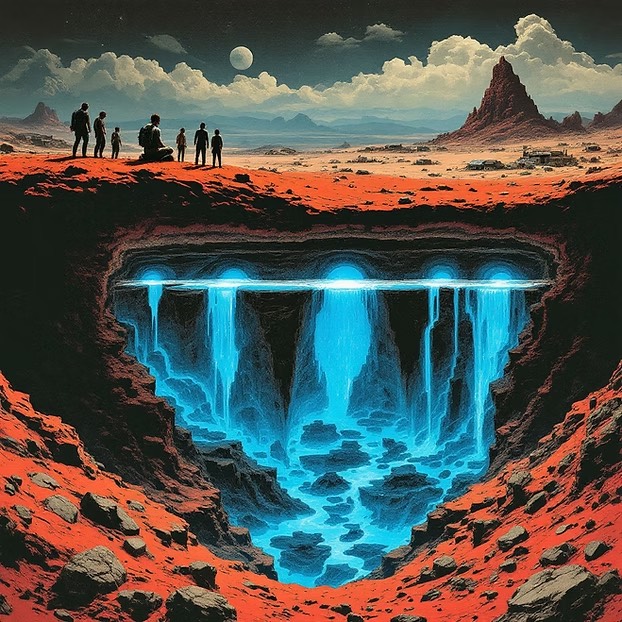
Old Tomas articulates this trade-off explicitly: “We water finders don’t die young, son. We trade years for meaning.” This exchange—skill for suffering, purpose for longevity—intensifies the Western hero’s traditional dilemma. The question becomes not just “Should I help this community?” but “Am I willing to sacrifice my life for people I barely know?”
From Running to Rooting
The character arc of the Space Western drifter typically follows one of two paths: either the hero helps the community and then rides (or flies) off into the sunset, or they find a reason to stay, often at great personal cost. In crafting Soren’s journey, I chose the latter path, but with a twist that speaks to the core of what makes Space Westerns compelling.
Soren doesn’t just decide to stay; he physically cannot leave after sacrificing his health to find the deep reservoir. His decision transforms him from someone who “never [stayed] long enough to learn names” to someone who becomes integral to the community’s future. This transformation happens gradually through relationships with characters like Mira, Elara, and Old Tomas—each representing different aspects of community life and offering Soren glimpses of what belonging might feel like.
The Corporate Antagonist
No Western is complete without its villains, and the Space Western often replaces cattle barons and railroad tycoons with interstellar corporations. In “The Water Finder,” the corporate survey ship represents the impersonal force of exploitation that threatens not just resources but way of life. As Elara explains, corporate relocation means “separated families, assigned jobs, monitored consumption. Freedom exchanged for survival.”
This corporate threat gives Soren’s decision more weight. He’s not just saving lives; he’s preserving a way of life—another classic Western theme transplanted to the stars. His choice becomes an act of resistance against systems that would commodify both natural resources and human potential.
Legacy Instead of Legend
The traditional Western often ends with the hero riding away, perhaps wounded but alive to become a legend. The Space Western can take this trope in new directions. For Soren, legacy replaces legend. His decision doesn’t make him famous; it makes him part of something lasting. The drilling of a second well—”this one for the neighboring settlement, guided by coordinates he’d provided during his deep sensing”—shows how his impact ripples outward, like the water he once feared would “drown him.”
In the story’s final image, Soren has become a teacher, passing knowledge to the next generation despite his deteriorating physical condition. This evolution from drifter to mentor represents the complete transformation of the reluctant hero archetype, from someone who preserves their own freedom at all costs to someone who finds freedom in service to others.
The Space Western’s Continuing Appeal
What makes the Space Western such fertile ground for exploring these character transformations? Perhaps it’s because setting these stories among the stars amplifies both the isolation of the characters and the significance of their choices. In a universe as vast as our own, the decision to stop running—to claim a place and people as your own—carries even more weight.
In Soren’s journey from water finder to community member, from runner to teacher, we see the evolution of the Western hero for a new frontier. His story reminds us that sometimes the bravest thing isn’t riding alone into the sunset, but choosing to stay where you’re needed, even when that choice comes at great personal cost.
As Mira observes near the story’s end: “My mother used to say everyone has two fates… The one they’re given and the one they choose. Sometimes they’re the same thing from different directions.” In this observation lies the heart of the reluctant hero’s journey, whether that journey unfolds across dusty plains or distant planets.
Learn more about my writing at Sci Fi and Supernatural Thrillers | Author Daniel P. Douglas. Read “The Water Finder” in its entirety here.
